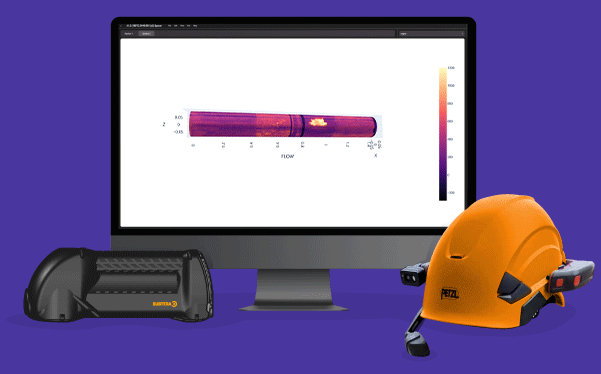Machine Learning feasibility
Subtera has recently completed an Innovate UK funded research project, in collaboration with the National Physical Laboratory, to explore the feasibility of applying machine learning techniques to our passive sub-terahertz pipework inspection data.
The overarching objective of the project was to identify which machine learning methods could be applied in order to correctly classify corrosion and moisture within real-world inspection data sets.
The project was successful, with a high probability of classification achieved for both corrosion and moisture, in parallel with a low false-positive rate.
Subtera’s CEO, David Haskett, commented “We would like to thank Innovate UK and the National Physical Laboratory for their support in this successful project, which has accelerated Subtera’s machine learning research and development. Thanks to this project, we will be introducing a ‘decision support’ function into our products earlier than we would otherwise have been able to.”
Tameem Adel, Senior Research Scientist, NPL said: “To the best of our knowledge, the machine learning model developed by NPL represents one of the very first automated decision-making frameworks aiming to learn from this type of inspection data. In addition to classifying corrosion and moisture, the algorithms developed by NPL have addressed other issues which have a lot of potential for future work on inspection data, like generating synthetic data and data cleansing.”

Share article:
You may also like to read
Signup to our newsletter
To hear the latest from Subtera about our technology, industry insights, case studies and company news, enter your email and we’ll send updates directly to your inbox.
By signing up, you agree to our privacy policy.
